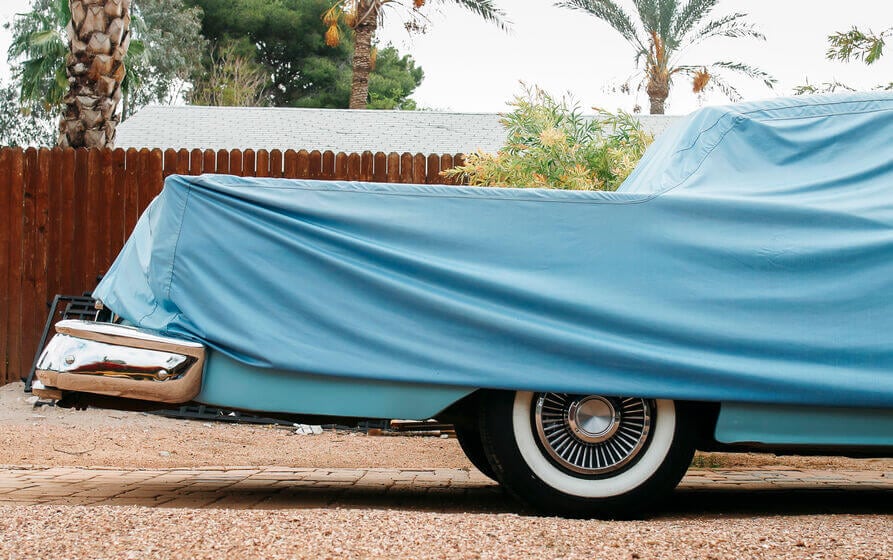How Do I Estimate the Value of My Donated Car for My Tax Deduction?
When you donate a vehicle for a tax deduction, the value of the deduction depends on what the charity does with the car. Your tax deduction will vary depending on whether the charity plans on selling your vehicle or keeping it. If you donated a vehicle to charity and plan on claiming a write off, here's how you can calculate your deduction.
The One Big Beautiful Bill that passed includes permanently extending tax cuts from the Tax Cuts and Jobs Act, including increasing the cap on the amount of state and local or sales tax and property tax (SALT) that you can deduct, makes cuts to energy credits passed under the Inflation Reduction Act, makes changes to taxes on tips and overtime for certain workers, reforms Medicaid, increases the Debt ceiling, and reforms Pell Grants and student loans. Updates to this article are in process. Check our One Big Beautiful Bill article for more information.

Key Takeaways
- Make sure the charity you donate your car to is an IRS tax-exempt organization.
- Estimate the fair market value of your car using a used-car guide such as the Kelley Blue Book.
- If the charity is going to sell the car, your deduction is limited to the sale price, even if it’s below the market value. If it sells for $500 or less, you can claim a deduction for the lesser of its fair market value or $500.
- If the organization plans to keep the car, then you can deduct the car’s fair market value. If that value exceeds $5,000 and the charity doesn’t sell the car, you must obtain a written appraisal before claiming a deduction.
Valuing your donated car
Donating your car to charity can be a good deal for both you and the organization you give it to. A charity may keep your vehicle for its own use, donate it to someone in need or sell it to obtain the cash. Deducting your car donation can save you a significant amount of income tax; however, the IRS increased the documentation requirements you must adhere to. To avoid having the IRS question your deduction, be sure to follow the guidelines and keep every document that proves your donation.
Step 1—Find a qualified charity
The most important step in deducting the value of your car donation is to insure the charity you donate it to is an IRS tax-exempt organization. Only the donations you make to these types of organizations allow you to claim the deduction. Generally, these include religious groups, charities and organizations that promote education, literacy, scientific or humanitarian causes.
Step 2—Estimate the value of your car
Look up the fair market value of your car in a used-car guide such as the Kelley Blue Book. Find the make, model and year for your car and use the listed private-party value for the overall condition of the vehicle. For example, if the body is dented, the air-conditioning doesn't work and it has excessive mileage, it’s unreasonable to estimate the fair market value using the price for a car in “excellent” condition.
TurboTax Tip:
Obtain a written acknowledgement from the charity that includes your name and Social Security number, the vehicle identification number, the date of contribution, and a statement that either lists all goods and services you receive for the donation or confirms that you received nothing.
Step 3—Determine usage
Find out how the organization intends to use the car. If it's going to sell the car, the IRS limits your deduction to the sale price, even if it’s below the market value. However, if it sells for $500 or less, you can claim a deduction for the lesser of its fair market value or $500. If the organization plans to keep the car, then you can deduct the value you found in the used-car price guide. If that value is greater than $5,000 and the charity doesn’t sell the car, then the IRS requires you to obtain a written appraisal before claiming a deduction.
Step 4—Acquire documentation
Ask the charity for documentation. If it sells the car, IRS rules state that it must inform you of the sale amount within 30 days, generally on a Form 1098-C. Regardless of whether it keeps or sells the car, the organization must provide you with a written acknowledgement that serves as your proof of the donation. At a minimum, the document must include your name and Social Security number, the vehicle identification number, the date of contribution and a statement that either lists all goods and services you receive for the donation or confirms that you received nothing. If you do receive something of value from the organization, you must reduce your deduction by its value.
Things you'll need
- IRS Publication 78
- documentation from the charity
Tip
- Your donation is not complete until you transfer the car’s title to the charity. This also ensures you won't be held liable if the car racks up parking tickets.
With TurboTax Expert Full Service, a local expert matched to your unique situation will do your taxes for you start to finish. Or, get unlimited help and advice from tax experts while you do your taxes with TurboTax Expert Assist.
And you can file your own taxes with TurboTax Do It Yourself. Easily start your taxes by adding your forms and answering a few simple questions, then we’ll guide you from there. No matter which way you file, we guarantee 100% accuracy and your maximum refund.
Get started now by logging into TurboTax and file with confidence.














